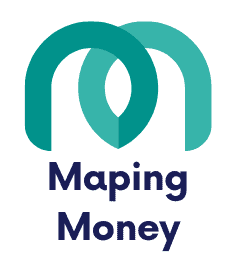How Credit History Impacts Your Budgeting Strategy
Your credit history impacts your budgeting strategy considerably. It affects loan approvals and interest rates, which can either ease or strain your finances. A strong credit history usually gets you lower rates, allowing you to save more and allocate funds effectively. Conversely, a poor credit record can limit your options and increase expenses, forcing you to adjust your budget. Prioritizing debt repayment and tracking your credit score are essential. By understanding these factors, you can make informed decisions to enhance your financial health. There’s much more to discover about how to optimize your budget based on your credit profile.
Key Takeaways
- A strong credit history leads to lower interest rates, significantly affecting monthly budgeting and overall debt repayment costs.
- Regular monitoring of credit reports identifies inaccuracies, enabling strategic budgeting adjustments to improve credit scores.
- Prioritizing debt repayment within a budget enhances credit scores, influencing future loan approval and financial opportunities.
- Allocating funds for emergencies within a budget reduces reliance on credit, thereby maintaining a healthy credit utilization ratio.
- Understanding credit implications aids in making informed budgeting decisions, ultimately fostering long-term financial stability and opportunities.
Understanding Credit History
Your credit history is like a financial report card, summarizing how you’ve managed credit over time. It reflects your borrowing habits, payment punctuality, and overall financial responsibility. Understanding this history is essential for your financial freedom. Each account you’ve opened, every payment made or missed, and all your credit inquiries contribute to this narrative that lenders use to assess your risk as a borrower.
When you grasp the details of your credit history, you empower yourself to make informed financial decisions. You can spot areas for improvement, like paying down debt or correcting inaccuracies that could hinder your financial progress. Take charge of your financial journey by regularly checking your credit report; it’s your right and a liberating step towards better control.
Building a strong credit history doesn’t just open doors to loans and credit cards; it can lead to lower interest rates and better terms. Think of it as a tool for long-term wealth creation. By understanding your credit history, you’re not just managing finances; you’re crafting a narrative that aligns with your aspirations for financial independence. Embrace this knowledge and let it guide your budgeting strategy toward a liberated financial future.
Importance of Credit Scores
While many people understand the basics of credit history, the importance of credit scores often gets overlooked. Your credit score isn’t just a number; it’s a reflection of your financial habits and responsibility. This score can empower you to take control of your financial future, influencing everything from your mortgage rates to your insurance premiums.
A strong credit score opens doors, granting you access to better loan terms and lower interest rates. It allows you to make choices that align with your goals, whether it’s buying a home, starting a business, or traveling freely. When you know your credit score, you can take strategic steps to improve it, like paying bills on time and reducing debt. Each positive action you take builds your score and, ultimately, your financial freedom.
Conversely, a low credit score can limit your opportunities and keep you shackled to higher costs. Understanding the importance of your credit score is crucial for crafting a budget that supports your dreams. By prioritizing your credit score, you’re investing in your liberation, empowering yourself to achieve the life you desire. Take charge of your financial destiny by embracing the significance of your credit score.
Impact on Loan Approval

A solid credit history plays a pivotal role in determining loan approval. When you apply for a loan, lenders evaluate your credit report to assess your financial reliability. A strong credit history shows that you’ve managed your debts responsibly, making you a more appealing candidate for loans. This can be your ticket to achieving your financial goals, whether it’s buying a home, starting a business, or getting a new car.
If your credit history is less than stellar, you might face challenges. Lenders could deny your application outright or offer you less favorable terms. This means more stress and less freedom in your financial decisions. However, you can reclaim your financial power by actively working to improve your credit. Pay off outstanding debts, make timely payments, and regularly check your credit report for errors.
Influence on Interest Rates
Interest rates often hinge on the strength of your credit history. When you apply for loans or credit cards, lenders scrutinize your credit report to assess your reliability. If you’ve built a solid credit history, you can access lower interest rates, ultimately saving you money. Conversely, a shaky credit history may lead to higher rates, which can feel like a financial chain weighing you down.
Imagine securing a mortgage with a low interest rate; it’s not just a matter of saving on monthly payments—it means you can invest more in other areas of your life. This freedom allows you to allocate funds towards your passions, savings, or even a dream vacation. A favorable credit history empowers you to seize opportunities without the burden of excessive interest costs.
To liberate yourself from high-interest traps, focus on maintaining a positive credit profile. Pay your bills on time, keep your credit utilization low, and regularly check your credit report for errors. By doing this, you’re not only improving your chances of lower interest rates but also paving the way for a healthier financial future, where you can thrive and pursue your goals with confidence.
Budgeting for Debt Repayment

Lower interest rates can make a significant difference in your financial landscape, but managing debt repayment effectively is just as important. To liberate yourself from the shackles of debt, you need a solid budgeting strategy that prioritizes repayment. Start by listing all your debts, including the interest rates and minimum payments. This will provide clarity on what you owe and help you identify which debts to tackle first.
Next, allocate a portion of your income specifically for debt repayment. Consider using the snowball method—pay off your smallest debts first to build momentum—or the avalanche method—focus on high-interest debts for savings in the long run. Whichever method you choose, guarantee you stick to your plan.
Cutting discretionary spending can free up additional funds for your repayments. Embrace a minimalist approach, and redirect those savings into your debt repayment budget. Remember, every dollar counts on your journey to financial freedom.
Stay motivated by tracking your progress and celebrating small victories along the way. With commitment and a clear budget, you can break free from debt and reclaim your financial independence.
Planning for Future Expenses
When planning for future expenses, it is crucial to think ahead and prepare for both expected and unexpected costs. Start by identifying your regular expenses, like rent, utilities, and groceries. But don’t stop there—consider potential big-ticket items, like car repairs or medical bills. Life has a way of throwing curveballs, and being ready means you won’t feel trapped when they come.
Create a separate savings fund for emergencies. This doesn’t just give you peace of mind; it liberates you from the anxiety of living paycheck to paycheck. You’ll find that when you know you have a financial cushion, you can make more empowered choices about your spending.
Also, think about future goals—whether it’s a vacation, education, or a new home. Factor these into your budget. When you allocate funds for your dreams, you’re investing in your freedom.
Lastly, review your budget regularly. Adjust it as your life changes, and keep refining your plan. By staying proactive and flexible, you’ll feel more in control of your financial future, allowing you to thrive without the burdens of unplanned expenses.
Tips for Improving Credit

Improving your credit score can feel intimidating, but it’s an essential step toward achieving financial stability. You can take control of your financial future by following some straightforward strategies. First, check your credit report regularly. Errors can drag your score down, so dispute any inaccuracies you find.
Next, pay your bills on time. Set up reminders or automate payments to prevent late fees that harm your score. If you’re struggling with debt, focus on paying down high-interest accounts first. This not only improves your credit utilization ratio but also saves you money in the long run.
Consider becoming an authorized user on a responsible person’s credit card. This can help boost your score without the risk of overspending. Finally, limit new credit inquiries; each one can temporarily lower your score. Instead, work on maintaining existing credit lines.
Frequently Asked Questions
How Often Should I Check My Credit Report?
You might dive deep into your finances, yet overlook your credit report. Check it at least once a year to stay informed and empowered. Regular reviews help you spot errors and seize opportunities for improvement.
Can I Dispute Inaccuracies in My Credit Report?
Yes, you can dispute inaccuracies in your credit report. Gather evidence, contact the credit bureau, and clearly explain the errors. It’s your right to guarantee your financial history reflects the truth and empowers your future.
Does Closing Old Accounts Affect My Credit Score?
“Don’t throw the baby out with the bathwater.” Closing old accounts can lower your credit score by reducing your credit history length. It’s wise to weigh the pros and cons before making that decision.
How Long Does Negative Information Stay on My Credit Report?
Negative information usually stays on your credit report for seven years. It can affect your score, but don’t let it define you. Focus on building positive habits and reclaiming your financial freedom instead.
Can I Build Credit Without Taking on Debt?
Yes, you can build credit without debt! Try becoming an authorized user on someone’s credit card, or secure a credit-builder loan. These methods let you establish a positive credit history while avoiding debt.




